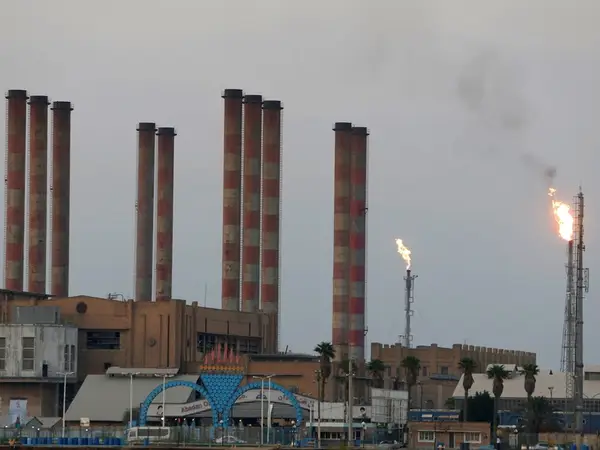The United States Treasury Monday sanctioned Chinese and Emirati companies it said were involved in the sale of Iranian petroleum and petrochemicals.
The action – under Executive Order (EO) 13846, signed by President Donald Trump in August 2018 – was followed later Monday by Behrouz Kamalvandi, spokesman for the Atomic Energy Organization of Iran, announcing Tehran’s latest steps beyond the limits of the 2015 Iran nuclear deal, the JCPOA (Joint Comprehensive Plan of Action).
Kamalvandi said Iran was feeding fuel into “hundreds” more IR-1 & IR-6 centrifuges – devices used to enrich uranium – as part of a plan for a capacity of at least 190,000 SWU (separative work units), a measurement of efficiency in enrichment. Under the JCPOA Iran was allowed only 6,104 of the less advanced 6,104 and no IR-6s.
The US petrochemical designations came the same day as President Joe Biden and Secretary of State Antony Blinken said they remained committed to restoring the JCPOA. It is unclear whether the Biden administration is trying to increase pressure on Tehran to make concessions in nuclear talks, appeasing domestic critics of the talks, or is moving towards a ‘Plan B’ should it deem the talks over.
‘Tens of millions of dollars’ worth’
The Treasury designations target companies over dealings with Iran’s Persian Gulf Petrochemical Industry Commercial Company (PGPICC), “one of the nation’s largest petrochemical brokers, to facilitate the sale of tens of millions of dollars’ worth of Iranian petroleum and petrochemical products from Iran to East Asia.”
The companies were Blue Cactus Heavy Equipment and Machinery Spare Parts Trading, based in the United Arab Emirates; Farwell Canyon, and PZFNR Trading, both Hong-Kong based; Golden Warrior Shipping, and Shekufei, both based in China; and Singapore-based Pioneer Shipmanagement.
Any assets held by the companies in the US may now be impounded, while persons or entities dealing with them worldwide may be subject to US penalties.
Monday’s action follows criticism of the Biden administration – which it disputes – for allegedly not being assertive against those trading with Iran. Many US ‘secondary sanctions,’ including under EO 13846, give discretionary rather than obligatory powers to the administration.
The Wall Street Journal reported Sunday that the US was pondering designating a British-Iraqi man over the sale of Iranian disguised as Iraqi oil, while the US last month designated companies from China, the UAE, and Vietnam allegedly linked to Iranian petrochemicals.
Iran’s petrochemical exports have held up under US ‘maximum pressure,’ although figures of $12 billion exports in the year ending March 2022 are questioned. Monday’s Treasury statement linked Blue Cactus to Triliance, which it said despite being designated under EO 13946 in January 2020 “remains one of Iran’s most important petrochemical brokers, brokering the sale of Iranian petrochemicals to foreign purchasers.”
Biden – ‘lead by example’
Biden Monday released a statement, ahead of the Tenth Review Conference of signatories of the Nuclear Non-Proliferation Treaty, saying the US as part of a commitment to “lead by the power of our example” had “developed a proposal to secure a mutual return to full implementation of the Joint Comprehensive Plan of Action to ensure that Iran does not acquire a nuclear weapon.”
Blinken said during discussions at the New York conference that the US regarded reviving the JCPOA as “the best outcome for the United States, Iran and the world.” Iran’s foreign ministry spokesman earlier in the day said overcoming differences in long-running talks to revive the JCPOA, which the US left in 2018, depended on Washington.
The US blames Iran for failure to bridge differences, which center on which US ‘maximum pressure’ sanctions violate the 2015 agreement and what steps Iran need to take to return its nuclear program, expanded since 2019, to JCPOA limits.
